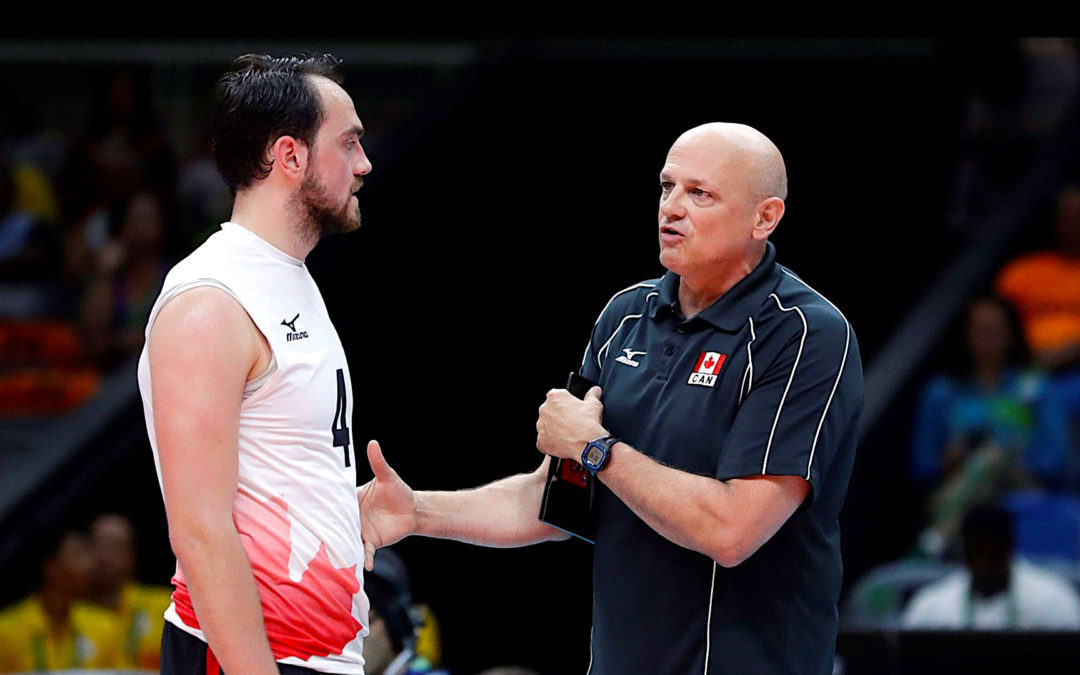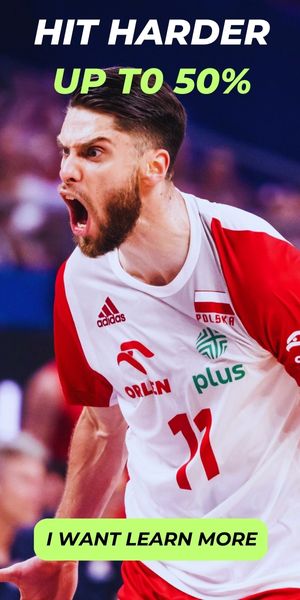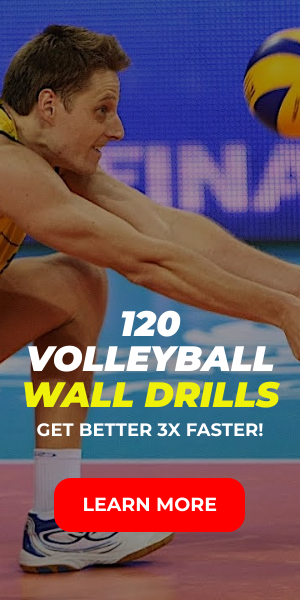There is an ongoing debate on the importance of a coach in sports, whether it’s Little League Baseball or fighting for volleyball gold at the Olympics. But let’s put it this way: if the coach had no bearing whatsoever, why do professional organizations with millions in research and data analysis continue to hire expensive managers in coaches?
Answer = Coaches make a difference.
They influence the organization from top to bottom, even if it’s not in their remit. Coaches foster team culture and cultivate it with diligent care to create optimal conditions for performance. They’re involved in the Xs and O’s, the team diet, physiotherapists, training sessions, everything.
In team sports like volleyball, coaches are critical. Teams of individuals never win, no matter how much talent is present. The impact on dynamics within the squad is unquestioned, and often the difference between winning and losing.
Joop Alberda’s Team-Building Pyramid
He’s one the best ever to do it, winning it all with his Dutch Olympic volleyball team in 1996. It was the pinnacle of his career, beating heavy pre-tournament favorites Italy in the final.
He attributes his success in part to the famous team-building pyramid. At the top of the pyramids is communication, without which teams cannot function. He leveled the field, encouraging players to not only talk to one another but to the coach as equals.
When he first took over the Dutch squad, the team also lacked confidence. The Italians were generally regarded as superior, with the Netherlands not known for its volleyball prowess. Alberda worked to give players a clear goal to work towards, a mutual dependence on each other, and the belief that they had the tools to win.
Tactical Innovator: Karch Kiraly
He’s one of the biggest names in volleyball, achieving elite results both as a player and coach. He notched three Olympic gold medals and two World Championships as a player, following that up with perhaps an even bigger achievement: during the 2020 Tokyo Olympics, he finally helped the United States women’s team achieve the gold medal.
His secret? Always looking forward, never the past. This outlook drives his innovative approach, resulting in a new and exciting offensive style for the national team. Moving away from a conservative style to more aggressive gameplay, markedly improving results for a team consisting largely of the same players.
Pros vs. College
Major studies show that college-level coaching is far more important than professional equivalents. During a sports analytics conference, data suggest that this is true across most major sports, including baseball, basketball, and football.
There are several potential reasons for this difference in impact. First, the variance in setups can be huge. You can change an entire organization’s fortunes by making changes that the pros implemented long ago.
Also, players are still young and have a lot left to learn. Professionals already have experience working with top-level coaches, meaning they possess the fundamentals knowledge, and experience to run plays without a coach’s input.
Yet the same studies also show that professional coaching still matters, although sometimes the difference is very small. But when the difference between winning a gold medal and walking away with silver can be a single server, it’s clear to see why organizations put so much time and effort into making seemingly minuscule improvements.
Peter Murphy: Penalty Specialist?
Even operating outside his usual profession, a coach can still make a tremendous difference. Here’s the story of how an ex top-level volleyball coach found himself with a job at the football World Cup in 2022.
Perhaps the best Dutch football coach of all time, Louis van Gaal has an impressive CV. He’s won the Champions League with a legendary Ajax team, led Holland to a World Cup semifinal with an unfancied team, and has won trophies with clubs like Barcelona and Manchester United.
The thing that sets him apart is that he leaves absolutely nothing to chance. He famously substituted Dutch number 1 Jasper Cillessen for Tim Krul in the dying stages of a World Cup quarterfinal. With the data showing that Krul is the best shot-stopper, he made the unorthodox call and the backup keeper promptly made the heroic saves Holland needed.
To up the ante during the World Cup in Qatar, he brought in volleyball coach Peter Murphy to help the team prepare for penalties. Known for his innovative approaches, the legendary volleyball coach shows that his volleyball expertise is transferable to other sports, even at the elite level.
Bottom Line = Coaches Make a Difference
Yes, great players are key to any successful team. But it’s not just about players. Without Holland’s talented generation featuring players like Guido Görtzen and Olof van der Meulen, Joop Alberda would not have won the Gold in Atlanta’s 1996 vintage.
Yet it also works the other way. Otherwise, Messi and Co. would dominate the Champions League with PSG multi-billions. And who can forget when Missouri beat 5th seed Northern Iowa in the NCAA volleyball tournament?
Coaches change games. They make the big decisions, both when the clock is running and off the court as well. When it comes to elite competitions, it’s these seemingly microscopic tweaks that can change the course of an entire organization.





